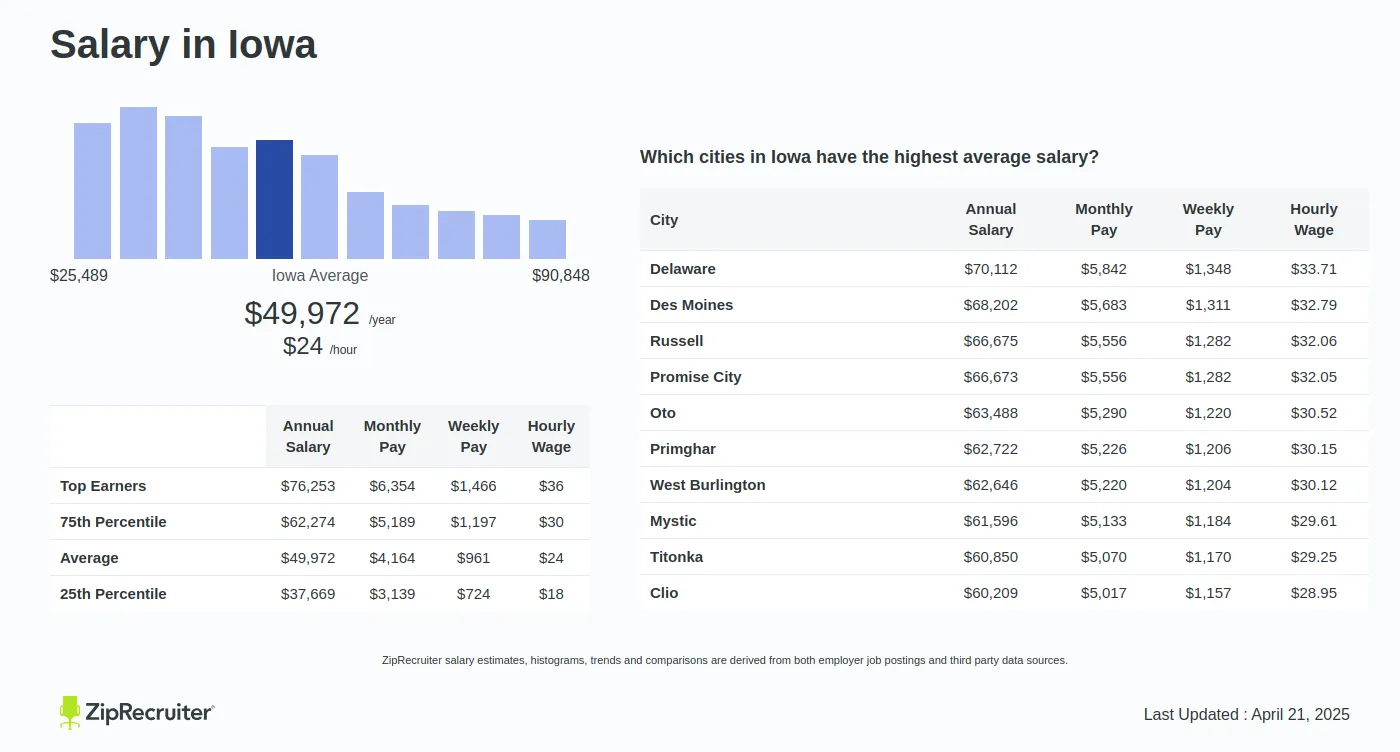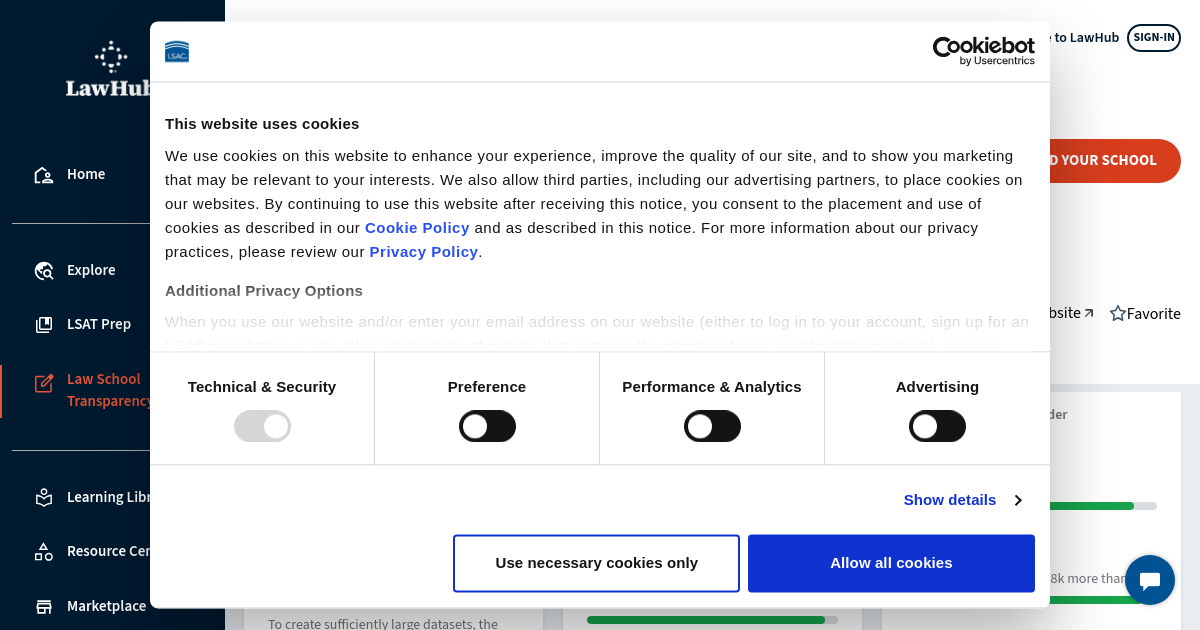When it comes to Iowa salaries, there’s more than meets the eye. The state of Iowa, often associated with its sprawling farmlands and small-town charm, has been steadily transforming its economic landscape. From agriculture to technology, healthcare, and manufacturing, the job market in Iowa offers diverse opportunities for workers across various industries. Whether you’re a recent graduate or a seasoned professional, understanding how salaries work in Iowa can help you make informed decisions about your career and financial future.
But here’s the thing—salaries in Iowa aren’t just about the numbers on paper. They’re influenced by factors like location, industry, education level, and even the cost of living. For example, someone working in Des Moines might earn differently compared to someone in Cedar Rapids, and that’s before we even dive into what type of job they’re doing. So, if you’re curious about what to expect from Iowa salaries, you’ve come to the right place.
In this article, we’ll break down everything you need to know about salaries in Iowa. We’ll explore average wages, top-paying industries, regional differences, and tips for maximizing your earning potential. Plus, we’ll throw in some useful stats and expert insights to give you the full picture. Ready to uncover the secrets behind Iowa’s income landscape? Let’s get started!
Read also:Top 5 Tips On How To Spot And Avoid Bad Financial Advice On Tiktok
Table of Contents
- Average Salaries in Iowa
- Top-Paying Industries in Iowa
- Regional Differences in Salaries
- Cost of Living Impact
- How Education Affects Salaries
- Job Growth Trends in Iowa
- Tips for Salary Negotiation
- Data and Stats on Iowa Salaries
- Future Outlook for Iowa Salaries
- Conclusion
Average Salaries in Iowa
Let’s kick things off with the big question: what’s the average salary in Iowa? According to the U.S. Bureau of Labor Statistics, the median annual wage for workers in Iowa is around $55,000. Now, keep in mind that this number can vary widely depending on your field of work and where you’re located within the state. For instance, professionals in tech or healthcare tend to earn higher salaries compared to those in retail or hospitality.
But here’s the kicker—salaries in Iowa are generally lower than the national average. However, this isn’t necessarily a bad thing. When you factor in the lower cost of living, especially in smaller towns, the purchasing power of your paycheck can actually stretch further. Think about it: a salary that might seem modest in a big city could go a long way in Iowa.
Another interesting point is that Iowa has been experiencing steady economic growth over the past few years. This means more job opportunities and potentially higher salaries in the near future. So, while the current averages might not blow you away, the trend is definitely moving in the right direction.
Breaking Down the Numbers
Here’s a quick snapshot of average salaries across different sectors in Iowa:
- Healthcare: $60,000–$80,000 per year
- Technology: $70,000–$90,000 per year
- Manufacturing: $45,000–$60,000 per year
- Retail: $25,000–$35,000 per year
- Education: $40,000–$60,000 per year
These numbers give you a rough idea of what to expect, but remember, they’re just averages. Your actual salary could be higher or lower based on your experience, qualifications, and specific job role.
Top-Paying Industries in Iowa
If you’re looking to maximize your earning potential in Iowa, it pays to know which industries are leading the charge. While agriculture has long been the backbone of the state’s economy, other sectors have been gaining ground in recent years. Here are some of the top-paying industries in Iowa:
Read also:Waitresss Brilliant Defense Against Nontippers Wins Admirers
1. Healthcare
With an aging population and increasing demand for medical services, healthcare is one of the most lucrative fields in Iowa. Jobs like physicians, nurses, and medical specialists often come with six-figure salaries. Plus, the state is home to several world-class healthcare facilities, making it a hub for medical professionals.
2. Technology
Believe it or not, Iowa is becoming a tech hotspot. Cities like Des Moines and Cedar Rapids are attracting tech companies and startups, creating high-paying jobs in software development, IT, and cybersecurity. If you’ve got skills in tech, Iowa might just be the place for you.
3. Manufacturing
Manufacturing remains a key player in Iowa’s economy, with companies producing everything from machinery to food products. While the salaries might not match those in tech or healthcare, they’re still competitive and often come with excellent benefits.
Regional Differences in Salaries
Where you live in Iowa can have a huge impact on your salary. For example, Des Moines, as the state capital and largest city, tends to offer higher wages compared to smaller towns. This is partly due to the concentration of corporate offices, tech companies, and financial institutions in the area.
On the other hand, cities like Sioux City and Waterloo might have lower salaries, but they also have a lower cost of living. So, while your paycheck might be smaller, your expenses could be too, leaving you with more disposable income.
Here’s a quick comparison of average salaries in different regions:
- Des Moines: $60,000–$70,000
- Cedar Rapids: $50,000–$60,000
- Sioux City: $45,000–$55,000
- Waterloo: $40,000–$50,000
As you can see, there’s quite a range depending on where you choose to work. It’s all about finding the right balance between salary and cost of living.
Cost of Living Impact
When discussing Iowa salaries, it’s impossible to ignore the cost of living. Compared to states like California or New York, Iowa offers a much more affordable lifestyle. Housing, groceries, and transportation are all relatively cheaper, which means your salary can stretch further.
For example, a $50,000 salary in Iowa might feel more like a $70,000 salary in a big city when you factor in the lower expenses. This makes Iowa an attractive option for people looking to save money or live comfortably without breaking the bank.
Breaking Down the Costs
Here’s a quick look at some common expenses in Iowa:
- Housing: $1,000–$1,500 per month
- Groceries: $400–$600 per month
- Transportation: $300–$500 per month
- Utilities: $150–$250 per month
Again, these numbers can vary based on where you live and your personal lifestyle, but they give you a good starting point for budgeting.
How Education Affects Salaries
Education plays a crucial role in determining your earning potential in Iowa. Workers with higher levels of education, such as bachelor’s or master’s degrees, tend to earn significantly more than those with only a high school diploma. This is especially true in fields like healthcare, technology, and education.
For example, a nurse with a bachelor’s degree might earn $70,000–$90,000 per year, while someone with only a high school diploma working in retail might earn closer to $25,000–$35,000. The gap is real, and it highlights the importance of investing in your education.
Investing in Your Future
If you’re considering furthering your education, Iowa has plenty of excellent institutions to choose from. Universities like the University of Iowa and Iowa State University offer top-notch programs in a variety of fields. Plus, many companies in Iowa offer tuition reimbursement programs, making it easier to pursue higher education without breaking the bank.
Job Growth Trends in Iowa
The job market in Iowa is on the upswing, with several industries experiencing significant growth. According to recent data, employment in healthcare, technology, and renewable energy is expected to increase over the next decade. This means more job opportunities and potentially higher salaries for workers in these fields.
One of the driving forces behind this growth is Iowa’s commitment to innovation and sustainability. The state has been investing in green technologies and renewable energy projects, creating new jobs and boosting the economy. If you’re interested in working in a forward-thinking industry, Iowa might just be the place for you.
Looking Ahead
As Iowa continues to diversify its economy and attract new businesses, the job market is likely to improve even further. This bodes well for workers looking to advance their careers and increase their earning potential.
Tips for Salary Negotiation
Now that you know the ins and outs of Iowa salaries, let’s talk about how to negotiate for the best possible deal. Whether you’re applying for a new job or asking for a raise, here are some tips to help you succeed:
- Do Your Research: Know the average salary for your position and industry in Iowa. This will give you a solid starting point for negotiations.
- Highlight Your Skills: Emphasize your unique qualifications and contributions to the company. This will help justify why you deserve a higher salary.
- Be Confident: Don’t be afraid to ask for what you’re worth. Remember, negotiation is a normal part of the hiring process.
- Consider Benefits: If the salary isn’t quite where you want it to be, see if there are other perks, like bonuses or extra vacation days, that can sweeten the deal.
With these tips in mind, you’ll be better equipped to secure the salary you deserve.
Data and Stats on Iowa Salaries
Let’s wrap up with some key data and stats to give you a clearer picture of the salary landscape in Iowa:
- Median annual wage: $55,000
- Top-paying industries: Healthcare, Technology, Manufacturing
- Cost of living index: 93.1 (lower than the national average)
- Job growth rate: 1.5% annually
- Unemployment rate: 3.5% (as of 2023)
These numbers paint a positive picture of Iowa’s economic health and job market. With steady growth and competitive salaries, the future looks bright for workers in the state.
Future Outlook for Iowa Salaries
Looking ahead, the outlook for Iowa salaries is promising. As the state continues to attract new businesses and invest in key industries, we can expect to see more job opportunities and potentially higher wages. Additionally, the growing emphasis on education and skill development will help workers stay competitive in the job market.
Of course, there are challenges to overcome, such as keeping pace with inflation and addressing workforce shortages in certain fields. But with the right strategies and investments, Iowa is well-positioned to thrive in the years to come.
Conclusion
In conclusion, understanding Iowa salaries is essential for anyone looking to build a successful career in the state. From average wages to top-paying industries and regional differences, there’s a lot to consider when evaluating your earning potential. By staying informed and taking

